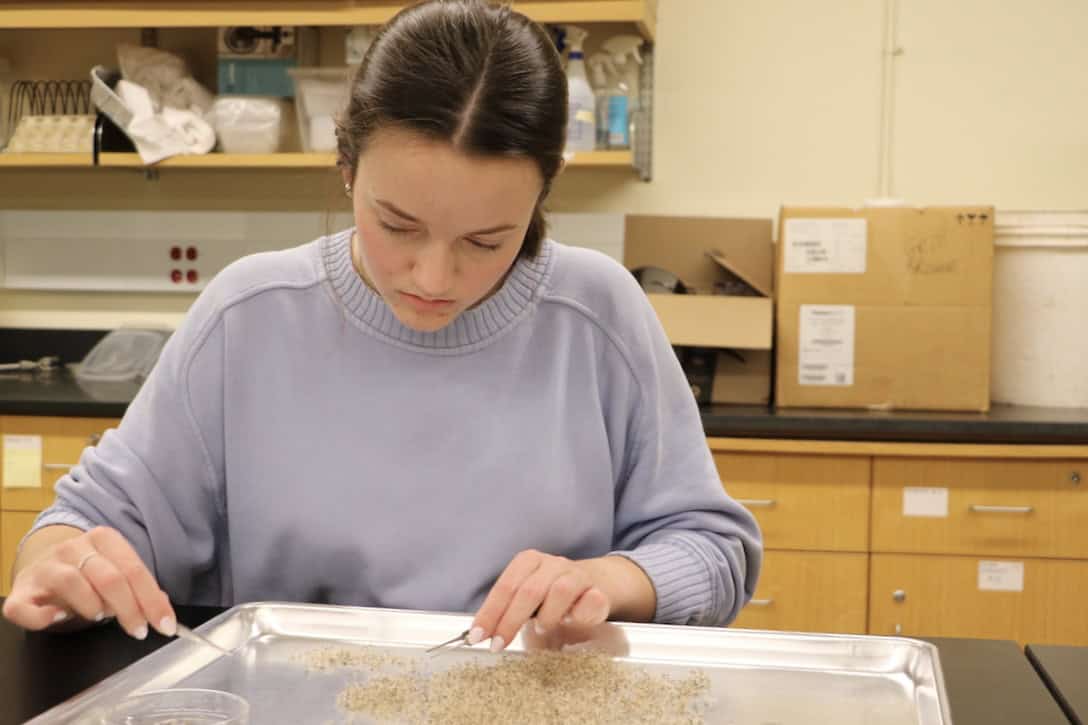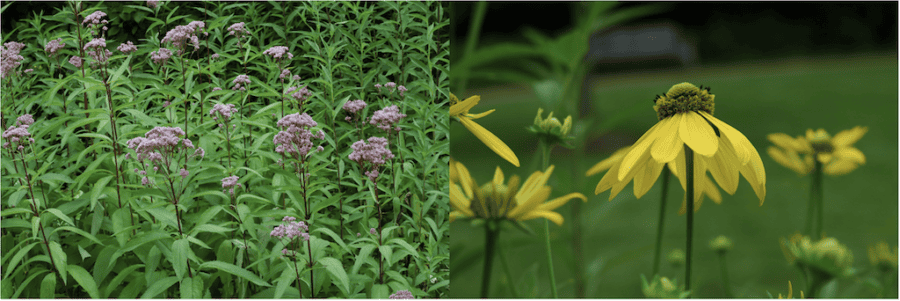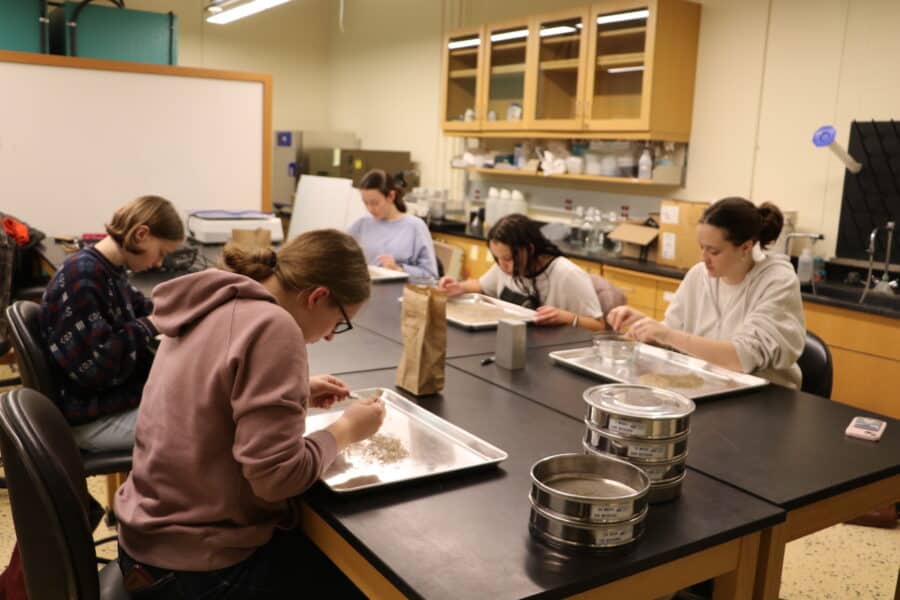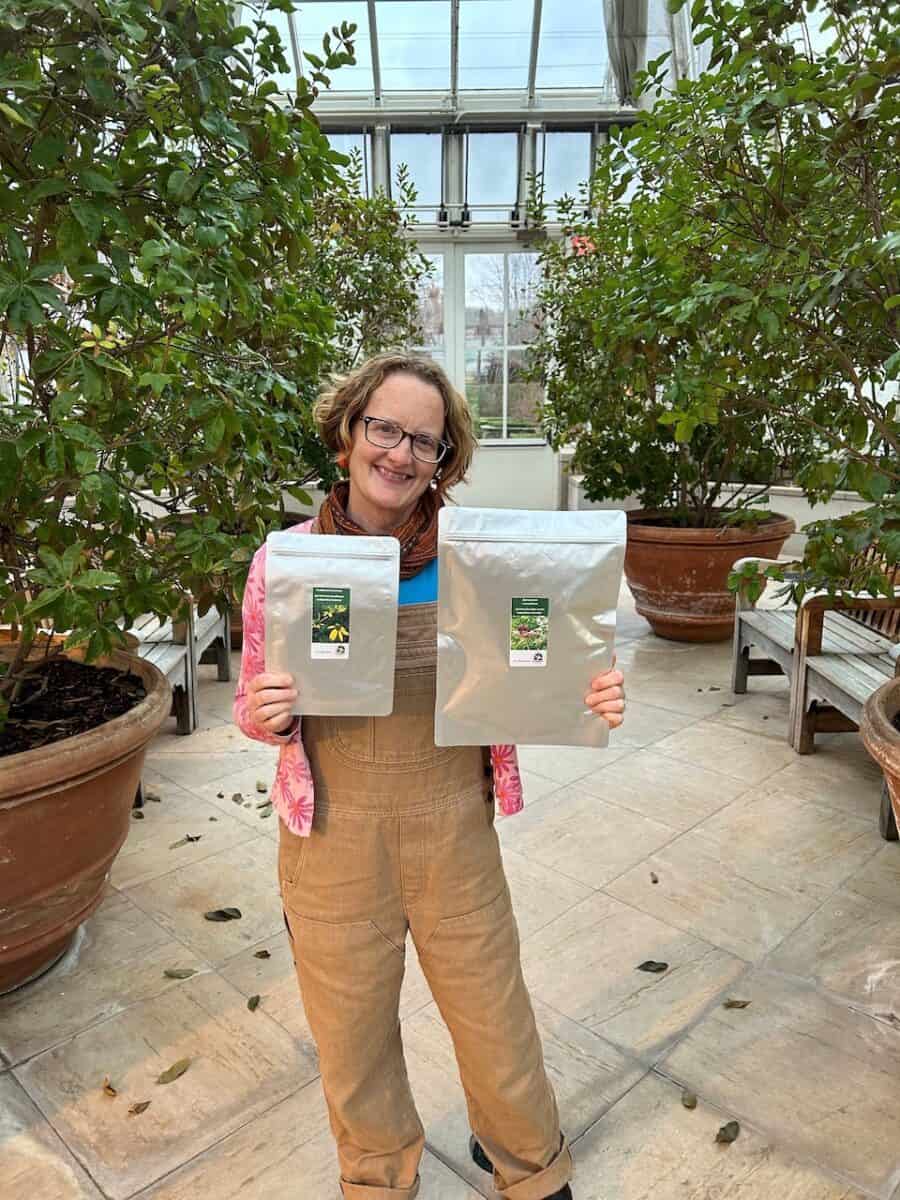
Support the environment and student research with a limited-edition seed purchase
Maritimers are increasingly seeking out local, sustainable food and products, and it feels more important than ever to grow local. Native plants play a crucial role in supporting pollinators, improving biodiversity, and maintaining ecological balance — all of which strengthen our region’s agricultural success.
Starting April 11, you’ll have a new opportunity to contribute to this shared effort and invest in Canada’s next scientific and environmental leaders — all through a $6.99 purchase that’s as light as a feather.
Halifax Seed, in partnership with Acadia University’s K.C. Irving Environmental Science Centre and Harriet Irving Botanical Gardens, is excited to offer a limited-edition sale of two native plant seeds that have been specially selected for their pollinator prowess, ease of growth, and attractiveness: Local ecotypes of the Cutleaf Coneflower and Joe-Pye Weed.

A limited supply of the seeds will be available for sale at Seedy Saturday at the Wolfville Farmers’ Market
on April 12th and at the Halifax Seed retail location from April 11th until supplies last.
Strong student investments
Part of what makes this climate-smart collaboration extra special is the involvement of Acadia students. This project was made possible in large part thanks to a significant student volunteer effort to hand-select, clean, and package the seeds. These students got a lot out of the initiative, too, having gained career-boosting, real-world experiences that have tangible community and consumer impacts.

“Being part of this project has been an exciting opportunity to help make native plants more accessible,” says Jillian Hill-Macmillan, a second-year biology student at Acadia and volunteer. “And I love that gardening with plants native to your region is a simple yet powerful way to support local ecosystems.”
When you purchase a packet of these native seeds, you’re also supporting the next generation of environmental stewards. One dollar from every sale goes directly to student research conducted through Acadia University’s K.C. Irving Environmental Science Centre. It’s an easy and mutually beneficial way alumni and the community at large can support today’s students.
A variety of conservation research projects and experiential learning opportunities are achieved through the K.C. Irving Environmental Science Centre. For example, student volunteers are trained to identify and remove invasive plant species that would otherwise upset the ecosystem. Many students also work in the Acadia Seed Bank, which is a repository of native seeds from woody and herbaceous plants of the Wapna’ki (Acadian) Forest Region. Student researchers are very involved in growing the seed bank and improving collective scientific knowledge, such as understanding the viability of seeds in long-term storage.
The case for native plants
Native plants like the Cutleaf Coneflower (Rudbeckia laciniata) and Joe-Pye Weed (Eutrochium maculatum) have evolved to thrive in the Maritimes’ unique climate and soil conditions, making them low-maintenance and resilient choices for your garden. Both of these perennial flowers are magnets for butterflies and bees. They’re pretty, too: the Cutleaf Coneflower features tall stems and bright yellow petals that typically bloom in late August. The Joe-Pye Weed, known for its clusters of pinkish-purple flowers, also blooms near the end of the summer.
“Native plants help connect us to the local ecosystem, turning our gardens into habitats that support biodiversity,” says Desdemona Shaw, Retail Operations and Marketing Manager at Halifax Seed.

Melanie Priesnitz, Conservation Horticulturist at Acadia’s Harriet Irving Botanical Gardens, agrees heartily with Desdemona. “We encourage home gardeners to recognize that the land they cultivate is a part of the unique and at-risk Wapna’ki Forest Region,” she says. “Planting local ecotype native species is a great way to create habitat for wildlife, support pollinators, and improve biodiversity across the region and on our planet as a whole.”
Melanie Priesnitz, Conservation Horticulturist at Acadia’s Harriet Irving Botanical Gardens, holds up the limited-edition native seed. “We are excited to be partnering with Halifax Seed to provide local, hand-gathered native plant seeds from our garden to yours.”
A truly Made-in-Canada solution
While the same species of flowers can be found in different parts of North America – with some seeds on the market coming from as far as Colorado – slight variations occur in different regions. The seeds being sold through the Halifax Seed and Acadia partnership are specific to the Maritimes and are therefore classified as local ecotypes. These seeds have been quality-tested by a team of researchers and hand-picked and cleaned by Acadia’s undergrad volunteers before packaging.
The collaboration between Halifax Seed and Acadia has been in the works for a few months, but many agree that the timing of the seed sale launch couldn’t be better.
“This partnership with Canada’s oldest family-owned seed company feels right,” says Melanie. “The K.C. Irving Centre and Harriet Irving Botanical Gardens has been working since 2002 to make native plants more available to home gardeners through our annual Native Plant Sale. When Halifax Seed reached out asking for advice on a new line of native plant seeds, we were excited to not only offer guidance, but also provide local ecotype, open-pollinated seeds.”
The excitement in this partnership is mutual. “It’s been a dream of mine to bring truly local seeds to our catalogue,” says Desdemona. “We know interest in native plant gardening is growing, and we’re thrilled to bring these truly local seeds to our community.”
Hot for these seeds? Better cool them first!
While these Cutleaf Coneflower and Joe-Pye Weed are easy growers, they need a bit of special care before they’re planted. Stratification – a short, cold, moist period that’s often created by putting seeds in a fridge for 30 days – mimics winter conditions and preps the plants to survive our Atlantic weather. Once established, both species are happiest in damp soil with some sun, but are tolerant to a range of conditions and require little to no maintenance.
How to buy your seeds
This seed sale is a limited-edition run, so don’t miss your chance to support this incredible initiative! Seeds will be available for purchase starting April 11th at Halifax Seed’s retail store. On opening day, staff from Acadia’s K.C. Irving Centre and Harriet Irving Botanical Gardens will be on-site from 12-4 PM to answer questions and share more about their work. You can also find the seeds at the Seedy Saturday event at the Wolfville Farmers’ Market on April 12th.


 Acadia University
Acadia University